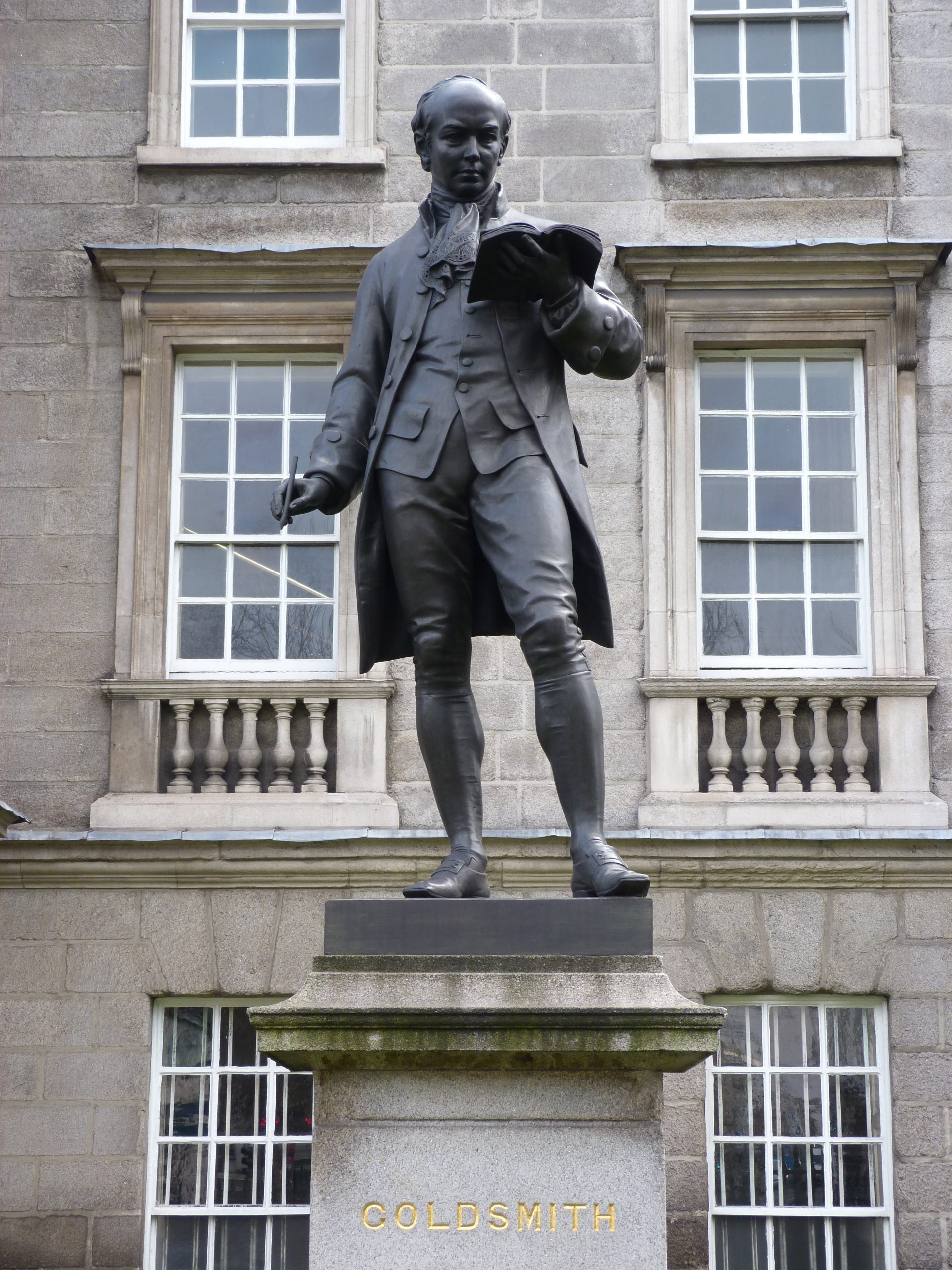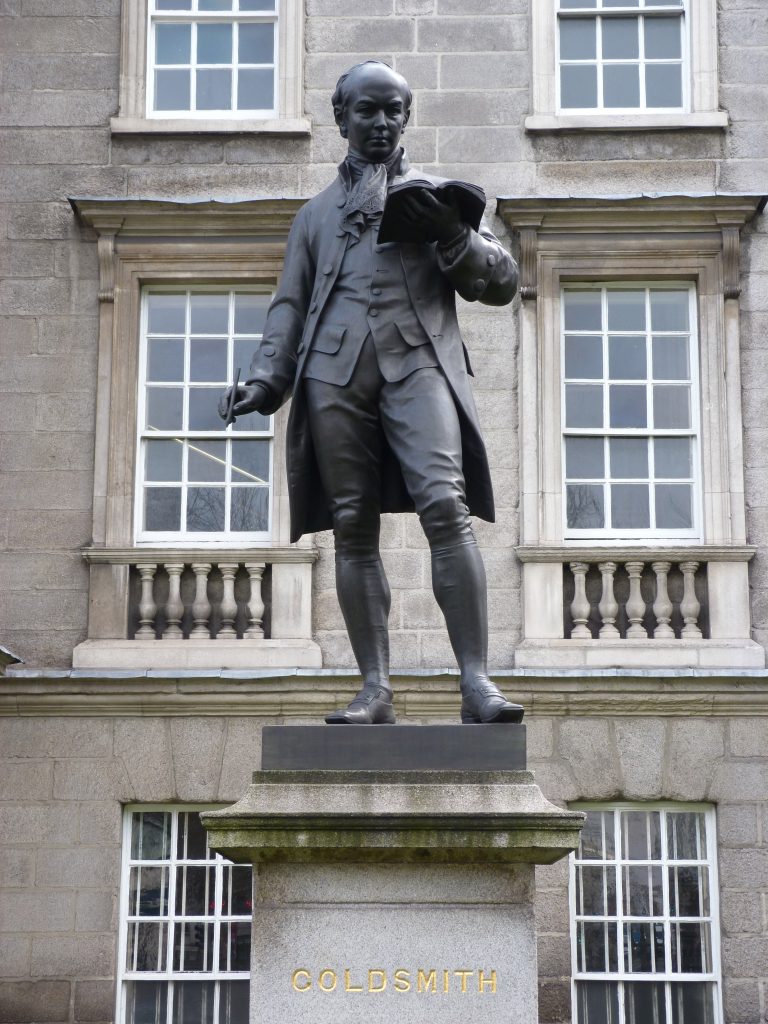Ireland has given the world some of the greatest literary minds, and among them stands Oliver Goldsmith, a writer, poet, and playwright whose works have transcended centuries. Born in the mid-18th century, Goldsmith’s legacy is etched in both the heart of Irish culture and the broader literary canon. His humor, insight, and ability to blend satire with genuine emotion made him one of the most cherished figures of his time.
This article delves into the life, works, and enduring impact of Oliver Goldsmith, providing a deep look into his genius and relevance today. Explore more on Ireland’s literary history at Secret Ireland.
Early Life: A Humble Beginning
Oliver Goldsmith was born on November 10, 1728, in Pallas, County Longford, Ireland, to an Anglican clergyman. Despite his humble beginnings, Goldsmith displayed an early aptitude for storytelling and music. His childhood was marked by a love for Irish folklore, which would later influence his work.
Goldsmith’s education began at local schools before he enrolled at Trinity College, Dublin, where he studied theology and law. Though academically inclined, Goldsmith was more drawn to the arts and the vibrant stories of the common folk, which shaped his creative perspective.
The Wanderer: Goldsmith’s Early Career
After his studies, Goldsmith embarked on a period of wandering across Europe. This journey not only broadened his horizons but also exposed him to different cultures and philosophies, experiences that would later enrich his literary works.
During this time, he faced financial struggles, often living hand-to-mouth while pursuing various endeavors. These difficulties lent his writing a relatability that resonated with readers of all social strata.
The Literary Achievements of Oliver Goldsmith
1. The Deserted Village
One of Goldsmith’s most famous poems, The Deserted Village (1770), is a poignant meditation on the decline of rural life. It critiques the social changes brought by industrialization and urbanization.
- Themes: Nostalgia, loss, and the simple beauty of rural existence.
- Famous Lines:
“Ill fares the land, to hastening ills a prey,
Where wealth accumulates, and men decay.”
The poem remains a cornerstone of 18th-century English literature and a window into the societal challenges of the time.
2. The Vicar of Wakefield
This novel, published in 1766, is perhaps Goldsmith’s most celebrated work. It tells the story of a clergyman’s family navigating a series of misfortunes with humor, moral integrity, and faith.
- Significance: The novel is a masterpiece of satire and sentimentality, blending humor with social commentary.
- Impact: It was admired by contemporaries such as Samuel Johnson and inspired later writers like Jane Austen.
3. She Stoops to Conquer
Goldsmith’s comedic play, She Stoops to Conquer (1773), remains a favorite in theatres worldwide.
- Plot: A witty and farcical exploration of class, mistaken identity, and romance.
- Cultural Legacy: It revitalized the comedic genre, breaking from the more serious tone of contemporary plays.
Oliver Goldsmith’s Style and Influence
Humor and Satire
Goldsmith had a unique ability to blend humor with sharp social critique. His works often shed light on the disparities between the rich and poor, critiquing societal norms with wit and grace.
The Irish Connection
Though Goldsmith spent much of his life in England, his Irish heritage was central to his work. The themes of displacement, rural beauty, and the common man in his writing reflect his Irish roots.
Legacy of Oliver Goldsmith
Oliver Goldsmith passed away on April 4, 1774, leaving behind a rich legacy that continues to inspire writers and readers alike.
Monuments and Tributes
- The Goldsmith statue stands proudly on College Green in Dublin, near Trinity College.
- His works are celebrated as part of Ireland’s literary heritage, studied in schools and cherished by readers.
Frequently Asked Questions About Oliver Goldsmith
1. What is Oliver Goldsmith known for?
Goldsmith is best known for The Vicar of Wakefield, She Stoops to Conquer, and The Deserted Village. His works span poetry, novels, and plays, blending humor, satire, and moral reflection.
2. Did Oliver Goldsmith write about Ireland?
While many of his works are set in England, Goldsmith’s Irish heritage influenced his themes, especially in The Deserted Village, which captures the essence of rural life.
3. What was Goldsmith’s style of writing?
Goldsmith’s style is characterized by wit, sentimentality, and social critique. His ability to combine humor with heartfelt emotion made his work universally appealing.
Exploring More Irish Writers
Oliver Goldsmith remains a cornerstone of Ireland’s literary history, inspiring countless generations with his wit and insight. To discover more about Ireland’s rich cultural heritage, visit Secret Ireland.
What’s your favorite work by Goldsmith? Let us know in the comments below!




